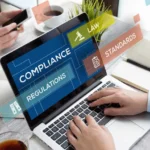Audit independence is the cornerstone of credible financial reporting and a fundamental principle in the auditing profession. It ensures that auditors can objectively evaluate an organization’s financial statements without bias or undue influence, fostering trust among stakeholders such as investors, regulators, and the public. However, maintaining independence is not just a technical requirement—it’s an ethical obligation with far-reaching implications. This blog explores the ethical dimensions of audit independence, its importance, and practical guidelines to uphold it effectively.
What is Audit Independence?
Audit independence refers to an auditor’s ability to remain impartial and free from conflicts of interest while conducting an audit. It has two key dimensions:
- Independence of Mind: The auditor’s state of mind that allows them to exercise professional scepticism and objectivity.
- Independence in Appearance: The perception by outsiders that the auditor is unbiased and not influenced by external pressures.
A breach in either aspect undermines the reliability of the audit process and erodes public confidence.
Ethical Implications of Audit Independence
- Integrity of Financial Reporting
- Auditors serve as gatekeepers of financial transparency. Compromised independence can lead to manipulated financial statements, hiding fraud, or misrepresentation of an organization’s health, ultimately harming stakeholders who rely on accurate data.
- Public Trust
- The auditing profession’s credibility hinges on independence. High-profile scandals (e.g., Enron and Arthur Andersen) demonstrate how perceived or actual lapses in independence can damage trust in auditors and the broader financial system.
- Conflict of Interest
- Ethical dilemmas arise when auditors have financial, personal, or professional ties to the client. For instance, providing non-audit services (like consulting) to the same client can blur the line between objectivity and self-interest.
- Accountability and Responsibility
- Auditors have a moral duty to act in the public interest, not just the client’s. Independence ensures they prioritize this duty over pressures from management or financial incentives.
- Regulatory and Legal Risks
- Ethically compromised audits can lead to regulatory penalties, lawsuits, and reputational damage for both the auditor and the audited entity.
Why Audit Independence Matters
- For Stakeholders: Independent audits provide assurance that financial statements are free of material misstatement, enabling informed decision-making.
- For Companies: It enhances credibility, attracts investment, and ensures compliance with laws and standards (e.g., Companies Act, 2013 in India, or SEC regulations globally).
- For Auditors: It upholds professional integrity and protects against legal or disciplinary action.
Practical Guidelines to Ensure Audit Independence
Maintaining audit independence requires proactive measures and adherence to ethical standards. Here are seven practical guidelines:
- Adhere to Regulatory Frameworks
- Follow guidelines from bodies like the Institute of Chartered Accountants of India (ICAI), International Federation of Accountants (IFAC), or the U.S. Public Company Accounting Oversight Board (PCAOB). For example, ICAI’s Code of Ethics prohibits auditors from having financial interests in audit clients.
- Limit Non-Audit Services
- Avoid providing services like bookkeeping, management consulting, or tax advocacy to audit clients, as these can create self-review or advocacy threats. If unavoidable, establish clear safeguards, such as separate teams for audit and non-audit work.
- Rotate Audit Partners
- Implement mandatory rotation of audit partners (e.g., every 5 years under India’s Companies Act, 2013 for listed companies) to prevent familiarity threats and bring fresh perspectives.
- Disclose Relationships
- Transparently report any personal or financial relationships between auditors and clients (e.g., family ties, investments) to audit committees or regulators. If significant, recuse yourself from the engagement.
- Establish Robust Internal Policies
- Audit firms should create independence policies, including regular training, conflict-of-interest checks, and pre-approval processes for non-audit services. A designated ethics officer can oversee compliance.
- Exercise Professional Scepticism
- Challenge management assertions, verify evidence independently, and resist pressure to overlook discrepancies. This mindset reinforces independence of mind.
- Engage Audit Committees
- Work closely with the client’s audit committee to ensure transparency and address potential threats to independence. The committee can act as a buffer between auditors and management.
Common Threats to Independence
- Self-Interest Threat: Financial incentives, such as owning shares in the client company or contingent fees based on audit outcomes.
- Self-Review Threat: Auditing work the auditor previously prepared (e.g., during consulting).
- Advocacy Threat: Promoting the client’s interests, such as lobbying for them in disputes.
- Familiarity Threat: Long-term relationships with clients that compromise objectivity.
- Intimidation Threat: Pressure from clients to alter findings or suppress issues.
Balancing Ethics and Practicality
While independence is non-negotiable, auditors often face practical challenges—tight deadlines, client expectations, or competitive pressures. Striking a balance requires:
- Clear Communication: Set expectations with clients about the auditor’s role and boundaries.
- Firm Support: Rely on the audit firm’s resources and policies to resist undue influence.
- Ethical Courage: Be willing to walk away from engagements that threaten independence, even at a financial cost.
Conclusion
Audit independence is not just a technical checkbox—it’s an ethical commitment to objectivity, integrity, and the public good. Its implications ripple through financial markets, corporate governance, and societal trust. By understanding the ethical stakes and following practical guidelines, auditors can uphold this principle while navigating real-world complexities.
For organizations and audit professionals alike, prioritizing independence is a shared responsibility. It’s about building a system where transparency thrives, risks are mitigated, and stakeholders can trust the numbers they see. In an era of scrutiny and accountability, audit independence remains the bedrock of ethical auditing—ensuring that truth prevails over influence.



